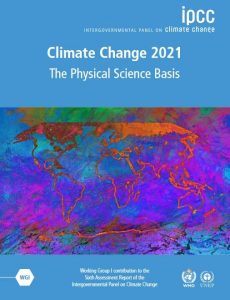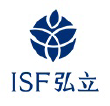Citizen or Steward: A World of Difference
Aug 27, 2021
The Intergovernmental Panel on Climate Change (IPCC), a body of the United Nations responsible for assessing the science behind our understanding of global climate change, released its sixth Assessment Report during the summer in which a grave warning was issued calling on all nations to arrest the impact of human activity on our global climate (AR6: https://www.ipcc.ch/report/ar6/wg1/ ). The report painted a pessimistic picture of climate change in the coming decades and received global media coverage that could be separated into two polarized groups: alarmed and supportive, or critical and dismissive. Differing political perspectives served to inform community and national debate about the danger facing humanity raised in the report.
My purpose in raising this complex and pressing issue as an educator is to reflect briefly on how we view ourselves in the Anthropocene – the current geological age in which human activity has the greatest impact on global climate and the environment. Are we wilful perpetrators, or passive victims? As we consider possible solutions, we might ask: what are our rights and responsibilities at this time in history? Our children have a need and a right to explore and understand the wicked problem of climate change as they grow to form their own perspectives and prepare take their own actions in the future.
In recent decades, there has been a great deal of discussion among educators around the world, and particularly for those working in the field of international education, on the notion of global citizenship. International bodies such as the United Nations, were founded on the idea of nations working together. Global citizenship, on the other hand, has at its core the idea that every member of the human race is a part of a global collective entity, regardless of nationality, ethnicity, gender, faith, or social standing. Global citizenship rests on the notion of global ‘belonging’: we are all in this together. As a school accredited by the Council of International Schools, ISF is expected to embrace global citizenship in our own context (https://www.cois.org/about-cis/global-citizenship ).
What does it mean to be a citizen? The modern concept of citizenship has developed over millennia in different ways in civilisations around the world. The European idea of citizenship can trace its roots back to the Greeks and Romans. It conveys the status of belonging and the right to protection. In English, the etymology of the word ‘citizen’ derives from an inhabitant or resident of a city or town, with entitlement to the rights and privileges of a freeman. In China, modern citizenship has grown out of the historical notion of the nation as one body 一體, ruled by a head (emperor), but comprised of diverse elements 和而不同 living in harmony to achieve peace 平天下. At its core, there is also the notion of belonging to the corporate whole. In general, we might say that globally citizenship confers the right to be safe and protected.
Perhaps another way of viewing our shared relationship with the world is through the lens of stewardship. The word steward comes from Old English Stig, a hall or ‘sty’; and weard, to guard or protect: it conveys the idea of faithful service and guardianship. In short, looking after something for someone else. For example, in the early days of air travel we were served by stewards, or most frequently stewardesses. An essential principle of stewardship is caring and protecting; it does not imply ownership. Throughout history, regents and monarchs have appointed stewards to look after the affairs of state in times of need, always with the understanding that the steward would be accountable at a future date for their actions.
The contrast between citizenship and stewardship when applied to global issues is one of fundamental orientation: the citizen expects as a matter of right to be protected by the world in the present; the steward has a duty of care to protect the world on behalf of its eventual owner – the future.
Would our actions and attitudes towards climate change and the environment change if we saw ourselves as stewards rather than citizens? This is an important question for parents and educators to consider carefully. It is likely that it would make a world of difference. Throughout history, the reality faced by each generation is that the world is theirs for only a short season; it is a tenancy with an expiry date. As global stewards, we are servants of the future – our children – charged with the temporary care of the world. This generation now faces some difficult choices. Have we served well?
Dr. Malcolm Pritchard
Head of School
